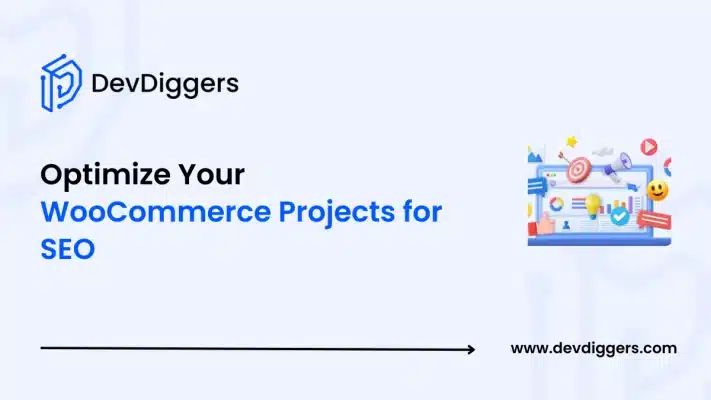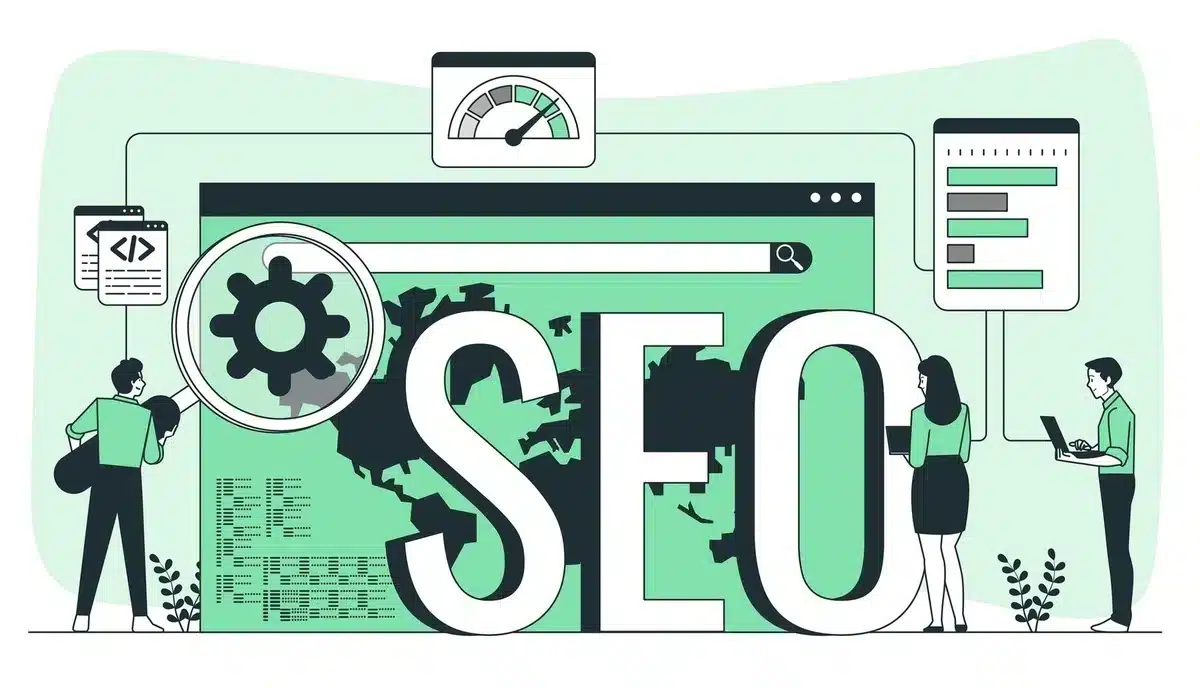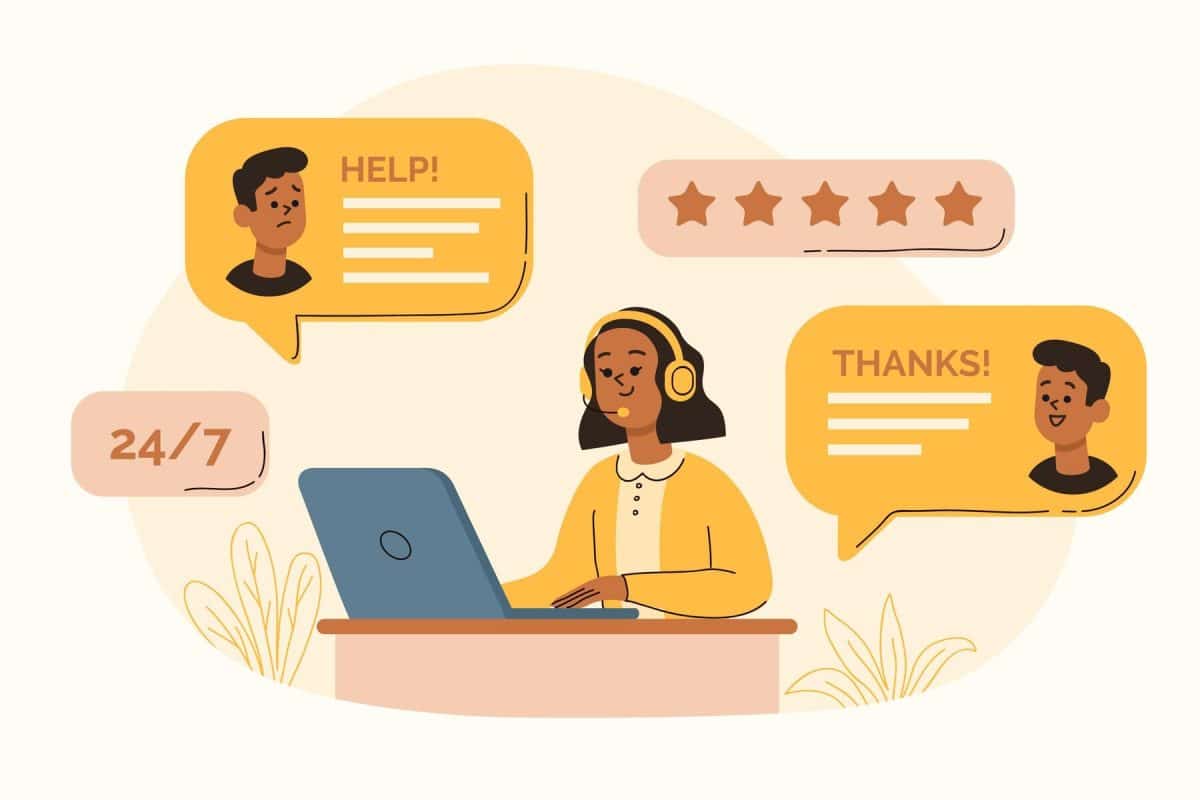Delivering Full-Service Solutions through Integrating SEO into WooCommerce Projects

WooCommerce developers have long focused on creating functional, scalable online stores. However, the expectations of e-commerce clients are growing. A high-performing store is no longer just about design and functionality.
Clients now expect traffic, conversions, and measurable growth. SEO is a key driver of long-term success, and integrating it into WooCommerce projects bridges the gap between technical build and business results.
This article explores why SEO must be part of the conversation from the start, how to incorporate it into development workflows, and the business value of combining SEO and WooCommerce services under one roof.
Why SEO Is No Longer Optional for WooCommerce Projects
Search engines remain the largest source of traffic for ecommerce businesses. Yet many WooCommerce stores underperform simply because SEO wasn’t part of the initial development plan. Adding it as an afterthought often results in missed opportunities, technical rework, and poor visibility.
Incorporating SEO from the start creates a stronger foundation for success. This section explains why ecommerce projects demand more than clean code and attractive layouts.
1. Organic traffic powers steady growth

Whereas paid media provides instant ROI, SEO creates the foundation of ecommerce long-term expansion. Natural traffic is so targeted and is better in conversions since users actively look for merchandise.
When fuelled by effective SEO, WooCommerce sites can continuously generate qualified traffic with little reliance on paid media. As a continual source of organic traffic, it usually provides customer lifetime value and ROI conversion at higher rates over a long time frame.
Ranking for informational and commercial intent keywords allows stores to build trust and authority in their niche. These rankings are earned, not bought, making them more defensible and enduring compared to ads.
For new stores or those operating on tighter budgets, this can be the difference between slow progress and steady growth. SEO also opens up opportunities for global reach, letting stores capture traffic from markets they aren’t explicitly advertising in.
2. WooCommerce Alone Doesn’t Guarantee SEO Performance

WooCommerce is a flexible ecommerce plugin, but flexibility isn’t the same as optimization. Without proper attention to SEO principles, a WooCommerce site can remain virtually invisible in search engines. Out-of-the-box setups often lack customized metadata, fail to create an ideal site hierarchy, or neglect mobile speed performance—all of which limit search visibility.
To build a truly SEO-ready store, developers must go further. That includes optimizing image alt tags, avoiding duplicate content issues (such as paginated archives or poorly structured filters), and setting canonical tags correctly. Additionally, leveraging Text mining techniques can help identify patterns in search queries and customer interactions, allowing developers to refine content strategies and enhance keyword targeting.
Poor crawlability, broken internal links, and lack of schema markup also limit the store’s ability to rank competitively. Developers who understand these nuances can address them proactively and position the store for success at launch.
3. Clients Expect SEO-Ready Sites
Clients increasingly assume their new WooCommerce store will attract search engine traffic from day one. Many do not differentiate between development and marketing responsibilities, leading to misaligned expectations if SEO is not explicitly offered.
Developers who clarify this distinction then offer SEO services or, through a partner, position themselves as more complete service providers. This expectation gap can damage trust if not addressed.
When clients discover their store isn’t ranking, they may question the quality of the project, even when SEO wasn’t scoped. Building SEO into the initial proposal or offering it as a related service helps close this gap and reinforces the agency’s professionalism.
4. Better Results Mean Better Retention
SEO success is tied to objective performance indicators, search rankings, traffic growth, click-through rates, and conversions. Unlike design, which is often subjective, SEO performance can be reported transparently. Agencies that offer these metrics to clients on a regular basis stand out as partners in growth, not just service providers.
When clients see their visibility increasing and sales improving, they’re more likely to continue the relationship. The collaborative nature of SEO—where strategy evolves based on data—also keeps clients engaged.
These ongoing relationships generate recurring income and build long-term business value for development agencies.
How to Seamlessly Integrate SEO into WooCommerce Development

Many WooCommerce developers are expanding their service stack to include SEO. However, building SEO into the development process requires planning and collaboration.
Whether handled in-house or through a partner, early integration is key. This section outlines practical steps for embedding SEO into WooCommerce workflows, including how working with a white-label SEO agency can offer scalability without hiring a full internal team.
1. Plan SEO from the Start
The foundation of a successful SEO campaign starts with planning. Before any design mockups are created or themes are installed, SEO strategy should be integrated into the discovery process. This helps align technical development with marketing goals and minimizes costly rework.
Planning SEO early means identifying the core product categories and matching them to high-value keywords. Developers can then structure the site in a way that supports both user navigation and search engine indexing. URL conventions, internal linking structures, and content areas like blogs or buying guides should all be decided upfront.
Keyword mapping to separate pages ensures each segment of the site serves a purpose and has an intended audience. It does more than inform search engines about what’s on the page; it stops cannibalization, where multiple pages battle for the same keyword, from happening. When SEO strategy leads development, the final product performs better across all channels.
2. Choose Technical Foundations That Support SEO
The technical performance of a website built on WooCommerce is highly dependent upon how it optimizes in search engines. Google’s page ranking is calculated on the grounds of speed, mobile-friendliness, and security. Coders need to design keeping all these things in consideration.
Theme selection is a good starting point. Lightweight, fast-loading themes reduce load times and improve user experience. Coupled with efficient hosting and caching configurations, these choices create a fast site without compromising design. Responsive design should be mandatory, ensuring the store works well on any device.
Schema markup or structured data is also a useful asset. Putting JSON-LD on product pages, review pages, and breadcrumbs gives search engines more information, increasing the chance of inclusion in richer search features like rich snippets.
The additions have also increased click-through rates, especially for competitive product lists. These technical issues include preventing thin content, using canonical tags, and doing redirects properly.
Other technical considerations include avoiding thin content, implementing canonical tags, and managing redirects correctly. Together, these elements form the technical foundation that allows content and authority-building efforts to succeed.
3. Add the Right Plugins and Configure Them Properly
Many developers install SEO plugins and assume the work is done. In reality, configuration is where the real value lies. Plugins like Rank Math or Yoast SEO offer powerful tools, but without active management, their potential is wasted.
Meta titles and descriptions should be written to support search intent and click-through rate. Auto-generated content rarely aligns with keyword strategy or brand voice. Sitemap settings should be refined to exclude low-value pages (like tag archives) while including key content. Breadcrumbs should be styled and placed to support both navigation and crawlability.
WooCommerce-specific challenges, such as duplicate content in variable products or pagination issues, require deeper configuration. Using custom canonical tags, disabling certain archive types, and optimizing taxonomy pages helps prevent these issues. When SEO plugin settings are configured with intent and consistency, the store benefits from stronger indexing and ranking.
4. Work with a White Label SEO Agency
White label SEO agency partnership allows WooCommerce developers to resell improved SEO services under their own brand names. White-label SEO agencies are silent partners that offer technical audits, content, link building, and ongoing strategy.
This model allows developers to expand their service menu without hiring or training an internal SEO team. It reduces overhead and provides immediate access to experienced professionals.
Deliverables such as keyword reports, backlink profiles, and monthly performance summaries can be integrated seamlessly into the developer’s workflow and client communication when working with a white label SEO agency that aligns with their technical and content standards.
Collaborating with a white label SEO company also fosters scalability. As demand increases, the company can handle more clients without overextending internal capacity. It is simpler to say yes to new opportunities without sacrificing a level of service degradation.
Business Benefits of Offering Full-Service WooCommerce + SEO Packages

Offering SEO as well as development turns a project-based business into a recurring revenue stream. Customers desire one-stop shops, and those agencies offering both development and SEO are at an advantage compared to the rest. This chapter examines the specific business advantages of offering both services under one umbrella.
1. Grow Revenue Per Client
Incorporating SEO into WooCommerce development raises the overall value of a client opportunity. Instead of pay-per-project payment, agencies can incorporate repeat revenue through SEO retainers, performance pricing, or tiered monthly subscriptions. It offers a more predictable revenue stream and enhances profitability.
SEO add-ons such as content strategy, technical audits, link-building, and monthly reporting allow agencies to package services. These packages come with high price tags, especially when paired with tracking results. Clients prefer having one partner do it all—from build to growth—streamlining their own processes.
For developers, this approach expands their business without changing their core skill set. With the right processes in place or a reliable SEO partner, each project becomes the foundation of a longer relationship rather than a one-time transaction.
2. Build Long-Term Relationships

SEO success takes time, and clients understand this. When agencies offer SEO, they create natural checkpoints for follow-up: monthly reports, keyword reviews, and strategy updates. These regular touchpoints keep clients engaged and demonstrate continued value beyond the initial launch.
Long-term relationships are easier to maintain when clients see steady improvements. Metrics like traffic growth, search engine visibility, and conversions give developers something concrete to show. This transparency builds trust and deepens the relationship over time.
Also, when customers outsource development and SEO to the same agency, there is better communication.
There is reduced miscommunication about technicalities, fewer gaps between teams, and a more holistic approach in general. The agency then emerges as a growth partner rather than a vendor of services.
3. Deliver Better Outcomes That Attract Referrals
A WooCommerce store backed by strong SEO efforts will outperform its competitors. Better rankings mean more visibility. More visibility leads to higher traffic. Higher traffic, when paired with a functional and well-designed site, drives sales. These outcomes build a compelling story that existing clients are often eager to share.
Word-of-mouth referrals are an organic by-product when results are self-explanatory. Clients who witness growth are inclined to refer their agency to the individuals in their network. Testimonials, case studies, and performance snapshots become powerful tools for acquiring new clients.
This cycle of results and referrals eliminates the need for outbound marketing and optimizes the value of each completed project. These are businesses that entwine SEO and development and create outcomes that foster their own growth organically.
4. Maintain Focus Through Strategic Outsourcing
It requires time, individuals, and ongoing training to oversee an entire SEO team. For development companies, it could spread their resources too thin. Having the capability to leverage outside partners—a white label SEO company—enables them to provide greater services without infringing on core development work.
Outsourcing circumvents recruitment and coordination with SEO personnel. Outsourcing also circumvents the lag in hiring personnel because the partner agency may already have established procedures and battle-hardened pros. Deliverables can be customized and delivered under the agency brand to ensure consistency in the client relationship.
This model can scale. The more clients request SEO, the more the agency can scale without internal bottlenecks. The developers still get quality builds with giving a bigger range of results, which provides them with a competitive advantage in the WooCommerce market.
With WooCommerce development, including strategic SEO, the service model has changed from value-based to transactional. That shift doesn’t merely improve for single-instance performance—it reconfigures agencies’ business and development. Replicable agency development is reliant on sustainable revenue, straightforward differentiation, and long-term partnership, all enabled by incorporating SEO into the service product.
An organic SEO base allows developers to transition from occasional projects to ongoing strategic services. Instead of relying on ongoing new business acquisition, businesses can create repeat business from customers requiring ongoing content updates, keyword optimization, and performance tracking. This creates a more stable model and lower financial volatility.
Companies offering both WooCommerce development and SEO will also attract more serious business clients—those requiring partners, not freelancers. These kinds of clients like planning ahead and will recommend the company to others in their network. This kind of reputation for getting results in the long term differentiates the company from other companies.
Cross-functional knowledge between SEO and development teams results in improved project planning and fewer bottlenecks. When technical and SEO teams are in agreement—or both tasks are managed by the same agency—site structure, design, and content strategy work together instead of working against each other.
That harmony saves project time, enables more efficient decision-making, and delivers better client outcomes.
5. Building a Sustainable Growth Model for WooCommerce Agencies

By taking WooCommerce development to the next level with strategic SEO infused within it, the agency is able to make a shift from transactional to value-based in its agency model. Such a feat not only improves the projects concerned but also transforms agency life and agency growth.
Predictable revenue, successful differentiation, and relationship-driven growth in the long run, achievable with the integration of SEO in service delivery, are imperatives of long-term agency growth.
A strong SEO foundation allows developers to move away from one-off projects and toward strategic repeat business. Instead of living from new client win to new client win, agencies develop repeating revenues from existing customers that require constant content refreshing, keyword adjustment, and performance monitoring. This leads to a more stable business model and less revenue volatility.
Business clients who seek partners rather than freelancers are more drawn to businesses that offer WooCommerce development and SEO. This kind of client values strategic advice and is most likely to refer the business to others in their network. In the long term, this record of success sets the business apart from other businesses in the competitive marketplace.
Crossing of SEO and development leads to better project planning and reduced bottlenecks. With the SEO and technical teams combined or both functions within the same agency—site architecture, design, and content strategy reinforce one another instead of fighting. Alignment simplifies projects, facilitates more informed decision-making, and achieves more tangible results for clients.
By investing in full-service solutions, WooCommerce developers become increasingly valuable to clients and more instrumental in their clients’ growth plans.
This develops trust, gives longer-term partnerships, and makes the agency invaluable to the client. SEO integration isn’t an add-on; it’s a growth enabler for agencies wanting to grow sustainably as well as differentiate themselves from the pack.
Conclusion
WooCommerce development has always been an issue of having a well-maintained storefront. Clients require output that directly relates to expansion.
The use of SEO in WooCommerce projects yields better results and happier clients. Handled in-house or through a white label SEO company, full-service solutions set agencies up for long-term success, higher client satisfaction, and additional revenue streams.

Abhijit Sarkar
Hi, I’m Abhijit Sarkar. I am deeply passionate about creating engaging content and exploring. My journey includes gaining valuable experience in content writing and creating useful resources for my readers.


Leave a Reply